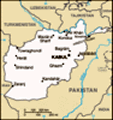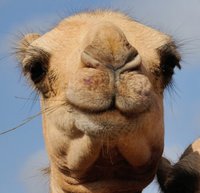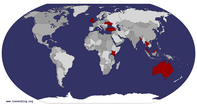COMING SOON HOUSE ADVERTISING ads_leader
It is a harsh life in the Wakhan. This is best evidenced by infant mortality rates that exceed 40% in places, contributed by a combination of climate and isolation. This harshness is reflected in the Wakhi faces that are as captivating as the mountains they live under. The faces are hard, and every line on their visage tells a tale of trial and tribulation. Even the children wore those same tough visages. It was rare to see a young looking child, for their faces usually resemble the adults, albeit in a much smaller form.
But beneath this hard exterior lies a warm and welcoming heart as our half-day hike through the villages past Sargaz revealed. It was again a glorious sunny day, and the low sun cast large shadows that shaded the main path. We passed numerous vignettes of pastoral life; children watching over grazing goats, men carting goods on the back of donkeys/mules, women tending to the fields. Interestingly, the women often showed their face in public, quite unlike Ishkashim. Usually, rural areas tend to be more conservative than population centres, yet in this part of the Afghanistan, the opposite occurred.
Upon meeting someone, there was always a

 Young mother and child - Qala Ouest, Afghanistan
Young mother and child - Qala Ouest, Afghanistan
I was most surprised when she agreed to this photo.greeting of placing one’s hand over the heart, which was often followed by a handshake. Many would question my guide Hameed about my presence and where I hailed from. All these encounters occurred whilst dwarfed by the astonishing scenery where rows upon rows of magnificent mountains plunged sharp and steep into ravines and rivers.
We passed an abandoned village whose former residents relocated a few years ago when a gigantic landslide destroyed most of the homes. Only crumbling walls remained, with missing roofs allowing me to peer into their former abodes. As with almost everywhere in the Wakhan, there is rarely a sound to be heard, and this muted environment where not even a bird sounds, provided an eerie setting.
Further along our journey, we were joined by an elderly man and his grandson who wished to accompany us on our trek to our destination of Kizkut. We followed a meandering rocky road that rose high above the river valley and closer to those grand peaks, before we descended into a green plain where Kizkut lay.
This marked the most distant point of my Afghanistan adventure, and the further one progresses along the Wakhan, the more isolated

 Goat herder - near Sargaz, Afghanistan
Goat herder - near Sargaz, Afghanistan
He was mute, so we communicated very well by gestures and expressionsit becomes. The Wakhan Corridor is relatively central, but once we arrived in the Big Pamir, villages became less frequent, less populated and vehicular traffic drops to almost nil. During this half-day walk along the Wakhan’s main road, we sighted not one vehicle. Further along is the Little Pamir where no roads exist and all travel is undertaken by foot or horse. One must allow a week to cross the Little Pamir, but time and money prevented me from continuing that far.
Upon arriving in Kizkut, we were greeted by the village elder who immediately invited us to stay for tea. Children and women peered shyly from behind mud-brick walls and homes as we passed. The welcome procedure into any village is similar. One is shown to a common room with a raised floor on three sides which is covered in rugs and the occasional cushion. The honoured guest is given the position in the middle of the centre platform that is usually directly opposite the door.
A silver coloured bowl is produced, and water from a similarly coloured decanter is poured so that guests can wash their hands, with the most important diner receiving the water first.

 The bridge in Sargaz - Afghanistan
The bridge in Sargaz - Afghanistan
The building on the middle left is Sargaz guesthouse.A blanket is produced and unfolded to reveal round, flat bread that is subsequently broken into pieces and distributed. There follows the tea and different dishes, but in this case, only bread was on offer. Food in the Wakhan is almost exclusively vegetarian, and usually consists of beans, potatoes and rice all washed down with a delectable milky tea. The end of the meal is signalled by bringing your two hands to the front of your eyes and moving them diagonally downwards.
During tea I was informed that this village solely exists on farming, and their staple crop is wheat, with which they barter for sheep and goats – and given the number of goats tethered around the village – the village seemed quite prosperous. Their life is harsh in winter, but in summer they at least have green fields and even trees to shelter under. Kizkut has only 149 inhabitants, which seems to be the usual size for population centres in the Wakhan.
When it neared time to depart, the village elder said to me, “I am sorry that I have nothing to offer you but tea and bread.”
I looked at the faces around me,
all waiting intently for my answer. They wished to provide me more, but it was not possible.
I replied with a smile, “The most important thing you could give me was a welcome and a smile, and you have done that.”
This comment was received with nods of approval. It again demonstrates an adage I regularly encounter in my travel – the people with the fewest possessions are far more generous than those surrounded by wealth.
I wished to remain in this village overnight, but we needed to continue, especially to avoid overstaying our time in the Wakhan and facing possibly further problems from the police in Khandud. After a much warmer return journey now that the sun was at its zenith, we arrived back in Sargaz and continued by vehicle.
Our next stop was my favourite village in the Wakhan. Qala Ouest was an expansive village spread across one of the largest fertile plains in the area. To reach the village, we crossed a bridge constructed by the
Aga Khan Foundation, a Swiss-based agency that performs extraordinary work improving the infrastructure, self-sufficiency and sustainability in this part of Afghanistan and the Pamir region of Tajikistan.
A
gurgling mountain stream with fresh, cold water poured from the mountain and made this an oasis in the surrounding rocky landscape. We were directed to the village elder who invited us into the common room, but this was much larger than that in Kizkut and consequently the audience was greater. Most interesting was that a young lady with beautiful intense eyes holding her child joined the gathering. This was the first and only time that a woman joined any of my conversations.
Much of the conversation involved Australia so I produced my laptop and showed them my photographs. These were viewed with great interest – especially the tall buildings of my former home of Brisbane and the green parkland of Southbank. This discussion involved laughter at my expense as I sought to mime my explanations about Australia in my usual extravagant fashion.
The village elder questioned me on a subject which several others had mentioned. They wanted to know if I was aware of the Afghan cameleers who were brought to Australia (along with camels) in the mid 19
th century to help Europeans explore the newly colonised land. They seemed most pleased when I demonstrated my knowledge of
this topic by explaining a brief history of the cameleers. My hosts were surprised to know that camels were not native to Australia and that their population now exceeds one million.
When I asked about Qala Ouest, the village elder lamented:
“Hikers and mountaineers do not stop here. They go straight to the mountains,” he paused before continuing. “Last year a large group of 30 foreigners came, but they did not stop,”
“Why should they stop in Qala Ouest?” I questioned.
“Because we can welcome them.” He responded
He then spoke quite quickly which made Hameed smile when he translated it “You are the first foreigner to sit in this room,” which only emphasised the point he was making.
“More people should stop here, you have the most beautiful village in the Wakhan,” I replied, and everyone, as expected, nodded their agreement.
It was apparent that in order to know the mountains you need to understand the hearts of the people that live around them.
Upon leaving, I requested some portraits, and most incredibly, the young lady who sat silently but sometimes laughed agreed to be photographed. We ambled back to the
vehicle slowly in order to prolong my time in this beautiful place, and were joined by a group of children who followed us to the edge of the village.
Our bumpy road journey continued, and we frequently needed to stop for water to cool the overheating engine of our troublesome Landcruiser, whose condition was deteriorating. We all felt relieved to pass through Khandud with no interference from the police and that evening we rested in another guest house.
Prior to departure the following morning, I was introduced to the village camels, which pleased me greatly, but there was the promise of more camels further along the road, so I insisted we search for them. This proved to be an unfortunate decision. Being unable to espy any along the main thoroughfare, we detoured from the road and met a goat herder. He stated that wolves had scared the camels the previous night and they were now missing. This was most disappointing; however something far more disappointing awaited, for the battered Landcruiser refused to start. Because the vehicle needed to roll down an incline to fire the engine into life, our group, joined by the goat herder, pushed the vehicle
up sandy rises and then thrust it down again, at which time it spluttered but fell silent. This work, under a warm sun and at an altitude of more than 3,000 metres, was hot and tiring.
After 90 minutes we were still heaving this damned vehicle around the sandy terrain. I told Hammed that in ten minutes I would return to the road 500 metres away and hope to flag down a non-existent vehicle to assist. We managed to push the vehicle to the highest point so far and with what felt like an almost final effort, we shoved it forward with great exertion and the vehicle coughed and rattled into life. We all celebrated and after hearty thanks to the goat herder, we quickly boarded and continued our journey – with me promising not to halt for any more camels.
We did however, have to make one more unscheduled stop, but this time for heavily armed border guards. The front suspension of their vehicle had partly collapsed and we had the repair tools they needed. In the half hour it took to fix the problem, I chatted to the only guard who spoke English and we shared

 The village of Kizkut - Afghanistan
The village of Kizkut - Afghanistan
We were provided tea behind the blue door on the rightmany laughs about some rather risqué topics. On the rear of their vehicle was mounted a menacing large calibre machine-gun, as both vehicle and its occupants were sent from Faizabad to patrol the Wakhan and ensure a secured border. The guards appeared to enjoy their job and they possessed a great camaraderie. Given the problems they could face, I have utmost respect for them and their work.
Finally, we returned to Ishkashim, where I again heard the prayer call issue from a mosque. I never saw any mosques in the Wakhan, or if they were present, the muezzin did not use any amplification. Though Ishkashim provides rudimentary amenities, it felt positively luxurious after my expedition to the Wakhan which is purely the realm of adventure travel, as one abandons the expected comforts such as electricity and running water.
We had been extremely fortunate during our Wakhan adventure as the weather was perfect. Two days before we departed it was horribly cold, and the day after we returned it worsened dramatically. Whilst at the bazaar, the sky rapidly clouded over, and a fierce dust storm was enjoined by a driving rain and wind that blew down the stall awnings

 Village elder at Kizkut, Afghanistan
Village elder at Kizkut, Afghanistan
He apologised for only being able to offer me bread and tea.and sent shopkeepers into hiding. I too was safely hidden in a room above the bazaar and watched the conditions deteriorate. Electricity within Ishkashim was cut, and the town was still without power when I departed Afghanistan the next day.
This was a fitting farewell from Afghanistan; watching the dust and rain batter Ishkashim whilst safely ensconced in a room surrounded by my new Afghan friends. Though the land is extremely tough, the welcome has been most generous. This has been one of the most remarkable weeks of all my travels – a time of incredible contrasts. I felt an irrevocably change within me from this experience, but am unsure exactly of its essence, but strongly sense that it will manifest over time.
The negative image of Afghanistan as portrayed in the media does not apply to the Wakhan. It is a shame that people take reports from the media and the Internet of terrorism or unrest that only effect certain parts of a nation, and wrongly extrapolate it to the entire country. The more I visit these supposedly dangerous destinations, the more enamoured of them I become for they always provide the most memorable and enjoyable travel
experiences.
COMING SOON HOUSE ADVERTISING ads_leader_blog_bottom
Tot: 0.141s; Tpl: 0.039s; cc: 19; qc: 29; dbt: 0.0316s; 1; m:domysql w:travelblog (10.17.0.13); sld: 1;
; mem: 1.2mb






























Dancing Dave
David Hooper
travels in a harsh land
"people with the fewest possessions are far more generous than those surrounded by wealth." I can picture you now...relishing the hospitality...relishing that you are there.